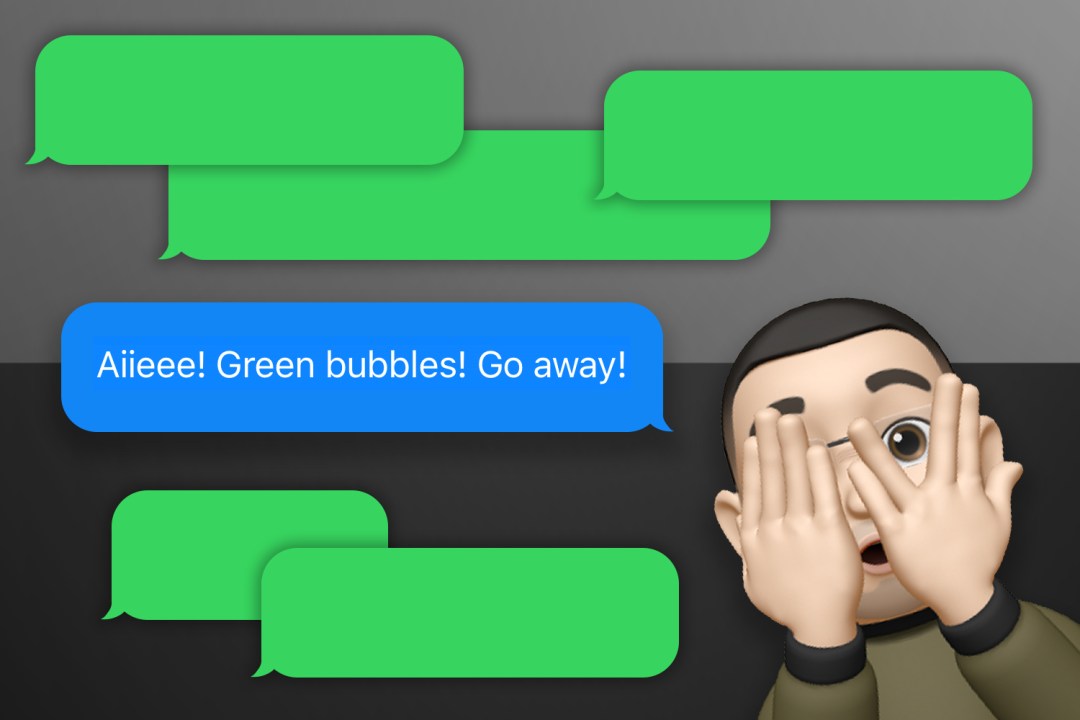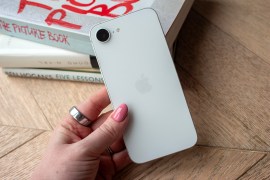I want iMessage everywhere – even though Apple wants to keep it all for itself
Nothing Chats will amount to nothing, and RCS support won’t fix green bubble hell. We need the real thing on Android

In 2014, Apple integrated SMS into Messages, so iMessages would appear alongside SMS messages. And there was much rejoicing. Except no, because there was mostly much ridicule. “We have these green bubble friends, and you know they have inferior devices. They insist on sending us messages, and we don’t want to hold it against them,” joked Apple exec Craig Federighi at WWDC.
Only Apple did ‘hold it against them’, because iMessages were displayed as blue bubbles, but messages sent via other services were, as Federighi noted, green. Apple would in more serious discourse argue there’s a point to all this: the colour of the bubble informs people about a message’s origins. And SMS lacks end-to-end encryption. So it’s all about security. Probably.
Which would be fine, except children – and often adults – have an endless capacity to be awful to one another. When I was a kid, there were actual fights over the supremacy of the ZX Spectrum and the Commodore 64. But kids with a BBC Micro had it worse, being the green bubbles of the day – second-class citizens of the playground.
Feeling green
Like much of the 1980s, those attitudes were ridiculous. But an equivalent today is as bad, with reports that green bubbles on phones lead to bullying and ostracisation in the USA, because the iPhone is so prevalent among teens. Green bubbles denote Android use, you see. And Android use denotes someone who is ‘other’. Presumably, US high schools are filled with children wearing Steve Jobs masks, chanting “ONE OF iUS! ONE OF iUS!”
Over here in relatively civilised Europe, everyone’s on WhatsApp and baffled about the iMessage bubbles. But the lack of ‘iMessages everywhere’ can still be problematic. My kid has an iPod touch. Most of her family in Iceland has access to Apple devices, letting her easily keep in touch with loved ones a thousand miles away. Except one aunt, because she has an Android phone.
These cases are very different, but both suggest a fix Apple could make: Messages for Android. However, there’s more chance Apple will resurrect Pippin. The iMessages service is a major factor in platform loyalty. If it was suddenly everywhere, Apple worries people would give their kids Android phones. Which, if you’re doing the maths, means more work for Apple (bringing Messages to Android) and dramatically lower income (since mucho iPhones = big profits).
Burst your bubble
Two stories this week suggested change is coming. (Spoiler: change isn’t coming.) First up, Nothing said it’s bringing iMessage to Android via a Nothing Chats app. This uses tech by Sunbird, a company that’s the opposite of open regarding how it intends to achieve such feats. And Nothing’s hardly championing openness either. Despite claiming it’s trying to “level the playing field”, its app will be available for precisely one phone: its own.
Next, there was a surprise reveal about upcoming RCS (Rich Communications Service) support in iOS – not entirely coincidentally squeaking in before the deadline for appealing against ‘gatekeeper status’ in the EU’s Digital Markets Act. Still, Apple’s support for this open standard will benefit iPhone and Android folks messaging each other. Improvements will include typing indicators, read receipts, high-res media sharing, and more.
However, Apple also confirmed RCS will work alongside iMessage – it won’t replace it. Those bubbles will still be green. My kid still won’t be able to iMessage her aunt. But such is life. I want Messages to be ubiquitous, but Apple’s priority is to make iPhone ubiquitous. So we all end up choosing platforms, building inevitable silos, and leaving some people out.
Still, it could be worse: at least we don’t all own BBC Micros.
- Now read: Humane’s AI Pin won’t replace your smartphone – but I think phones should steal its best ideas



